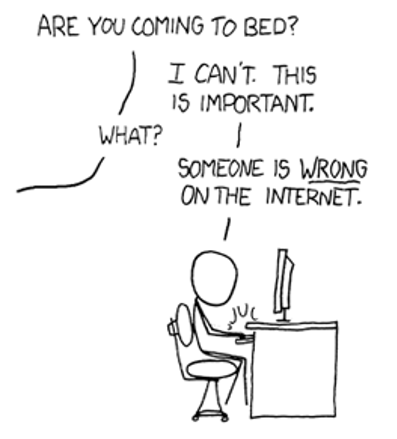Some other advice
- Keep to the subject and pick the right forum for your contribution.
- Before you write a message, check any rules about what is and is not considered acceptable in the forum. Many discussion forums have rules, aside from netiquette, about things such as links to commercial sites.
- Take a little time to use the forum’s search facilities to see if your question or topic has already been discussed or covered in a set of frequently asked questions (FAQs). If it has, you should at least scan the existing messages to see if your points have been addressed.
- Don’t feel you have to post immediately. Take your time to see what is being discussed and get a feel for the group you’re joining. This very sensible behaviour has the unfortunate name of lurking but is quite acceptable online. If you want to post, many discussion groups have a forum devoted to new users where they can introduce themselves to other readers. These are always good places to get started.
- Try to keep your messages short and to the point. People don’t want to read long, rambling messages, especially if they can’t work out what response you’re looking for.
- Write a concise subject line (title) for your message – people often won’t spend time reading messages unless the subject line looks relevant.
- Keep to one subject (topic of discussion) per message. If you want to cover another subject, do it in another message.
- When replying to a message, quoting part of that earlier message can be helpful so that readers can easily see what you are referring to. Add your response after the quoted material, not before it. And keep your quotation short and to the point, otherwise the resulting messages will get longer and longer.
- If you ask a question and it is answered, thank the person who responded. It’s not only polite, it also shows that the discussion has come to an end.
- If you’ve reached a point where you disagree with someone and neither of you is going to change your opinion (Figure 10), realise the conversation is over, agree to disagree, and move on.
Activity 8 (self-assessment) Netiquette
The following quiz on netiquette will test your understanding of what you have studied so far in this section.
a.
True
b.
False
The correct answer is a.
a.
True
b.
False
The correct answer is b.
a.
True
b.
False
The correct answer is b.
a.
True
b.
False
The correct answer is b.
a.
True
b.
False
The correct answer is a.
a.
True
b.
False
The correct answer is a.
a.
True
b.
False
The correct answer is b.

